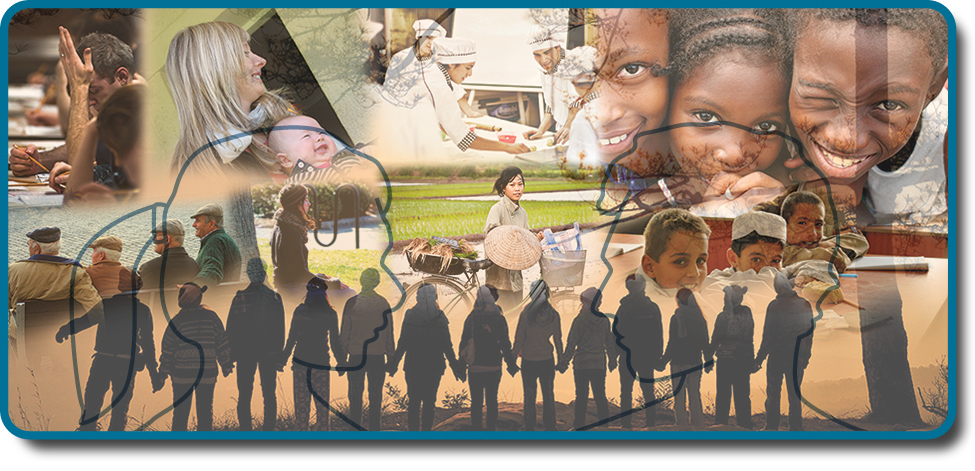
1.1 What is psychology? Read Online
1.2 History of psychology Read Online

Clive Wearing is an accomplished musician who lost his ability to form new memories when he became sick at the age of 46. While he can remember how to play the piano perfectly, he cannot remember what he ate for breakfast just an hour ago (Sacks, 2007). James Wannerton experiences a taste sensation that is associated with the sound of words. His former girlfriend’s name tastes like rhubarb (Mundasad, 2013). John Nash is a brilliant mathematician and Nobel Prize winner. However, while he was a professor at MIT, he would tell people that the New York Times contained coded messages from extraterrestrial beings that were intended for him. He also began to hear voices and became suspicious of the people around him. Soon thereafter, Nash was diagnosed with schizophrenia and admitted to a state-run mental institution (O’Connor&Robertson, 2002). Nash was the subject of the 2001 movie A Beautiful Mind . Why did these people have these experiences? How does the human brain work? And what is the connection between the brain’s internal processes and people’s external behaviors? This textbook will introduce you to various ways that the field of psychology has explored these questions.
American Board of Forensic Psychology. (2014). Brochure . Retrieved from http://www.abfp.com/brochure.asp
American Psychological Association. (2014). Retrieved from www.apa.org
American Psychological Association. (2014). Graduate training and career possibilities in exercise and sport psychology. Retrieved from http://www.apadivisions.org/division-47/about/resources/training.aspx?item=1
American Psychological Association. (2011). Psychology as a career. Retrieved from http://www.apa.org/education/undergrad/psych-career.aspx
Ashliman, D. L. (2001). Cupid and Psyche. In Folktexts: A library of folktales, folklore, fairy tales, and mythology. Retrieved from http://www.pitt.edu/~dash/cupid.html
Betancourt, H.,&López, S. R. (1993). The study of culture, ethnicity, and race in American psychology. American Psychologist , 48 , 629–637.
Black, S. R., Spence, S. A.,&Omari, S. R. (2004). Contributions of African Americans to the field of psychology. Journal of Black Studies , 35 , 40–64.
Bulfinch, T. (1855). The age of fable: Or, stories of gods and heroes . Boston, MA: Chase, Nichols and Hill.
Buss, D. M. (1989). Sex differences in human mate preferences: Evolutionary hypotheses tested in 37 cultures. Behavioral and Brain Sciences , 12 , 1–49.
This course covers the basic areas of anthropology including biological evolution, the prehistoric evolution of early civilizations, language, culture and social life, and the analyses of the nature and variability of human institutions.
However, the components that deal with cultural anthropology are heavily emphasized.
When you have finished this lesson you will be able to define anthropology as a discipline and describe the diversity and interrelatedness of anthropological research, and enumerate the history of anthropology, discuss the methods of anthropological research, and enumerate the subdivisions of anthropology.
You will also be able to analyze fieldwork in the context of the subdivisions of anthropology, discuss the benefits and limitations of participant observation, explain the basic ethics of anthropological reseacrh, and identify the uses of cross-cultural comparison.
Question: Which of the following is NOT true of the residual rules of a society?
Choices:
They are taken for granted and not formally taught.
Their violation is associated with insanity.
They constitute an open ended category of miscellaneous rules.
They are the religious rules of a society.
Question: Which of the following best defines deviant?
Choices:
a person who has broken moral rules
a person who breaks any rule
one who has been labeled by others for one’s role-playing errors
a criminal
Question: Spirit travel trance According to Bourguignon and Greenbaum, spirit possession is the form of trance that would be most likely in societies:
Choices:
that place heaviest stress on independence and assertion.
which stress the importance of compliance.
with small and widely dispersed populations.
of native North America.
Question: Cora DuBois attributed the shallow friendships and suspicious, pessimistic outlook of the Alorese to:
Choices:
the influence of genetics on Alorese personalities.
the influence of a harsh environment on the Alorese.
socialization that began with great indulgence at an early age.
socialization that involved inconsistent care and little attention to the needs of children.
Question: Psychological anthropology beginning with the 1950s differs from the earlier culture and personality research in:
Choices:
placing more weight on global generalizations about personality.
emphasizing statistically testable links between specific aspects of culture and particular psychological processes.
less use of cross-cultural comparison.
less reliance on fieldwork.
Question: Amok was a culturally specific mental disorder fund in which part of the world?
Choices:
Mongolia
China
Indonesia
New Guinea
Question: The field of culture and personality in the 1920s emphasized:
Choices:
that personality is not influenced by culture.
that the personality traits of individuals born into each society determine the main cultural characteristics that they will share.
that there are close parallels between each society’s culture and the common personality characteristics of its people.
That personality is an innate feature of each individual and is not greatly influenced by socialization.
Question: According to the text, the central psychological role of ritual is:
Choices:
uniting a community for coordinated action in times of disaster.
perpetuating loyalty to a religious ideology.
reducing anxiety.
helping people eliminate their problems.
Question: Which of the following is NOT characteristic of trances as outlined by Arnold Ludwig?
Choices:
They always involve alterations in thinking.
They always involve alterations in perception.
They always involve hyper suggestibility.
They always involve feelings of rejuvenation.
Question: Which of the following distressful emotions may be expressed as an alternative to any of the remaining three?
Choices:
fear
guilt
shame
anger
Question: Barry, Child, and Bacon compared the socialization practices of agricultural societies with foraging societies and found that:
Choices:
Agricultural societies were more likely to stress individualism.
Foraging societies were more likely to stress obedience.
Agricultural societies were less likely to stress assertiveness.
Foraging societies were more likely to stress compliance.